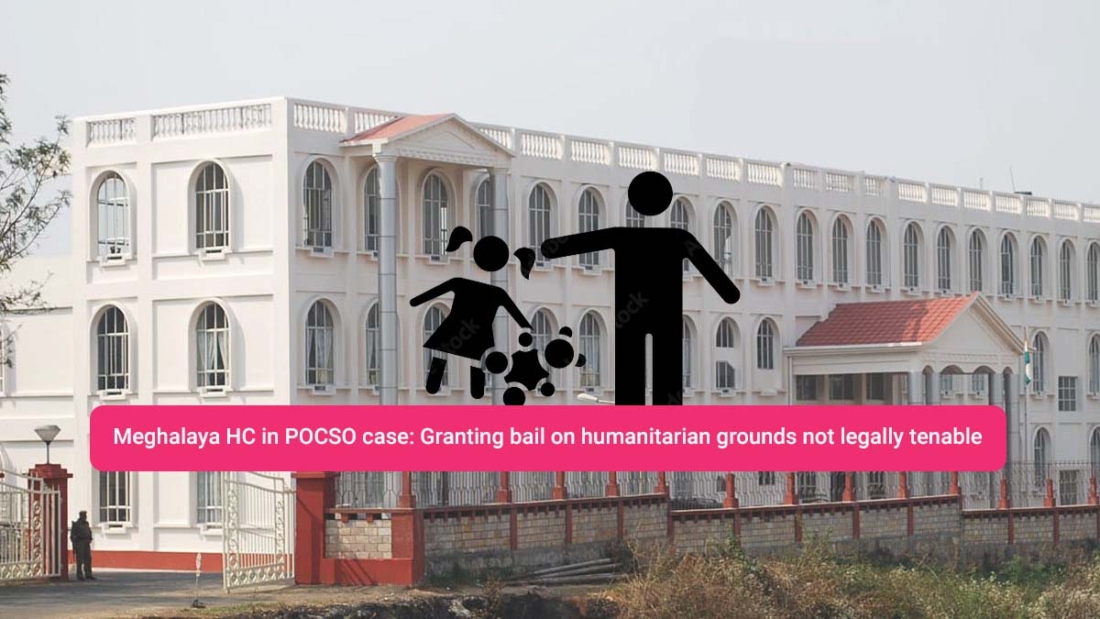In the matter of State of Meghalaya Vs. Heibormi Dkhar; the Meghalaya High Court on 10.12.2021, while setting aside the bail granted to an accused under the Protection of Children from Sexual Offences Act, 2012 (“POCSO Act”) observed that granting of bail on humanitarian grounds is not legally tenable.
The chargesheet filed in the case stated that a prima facie case was made out against the accused under Section 364 (kidnapping or abducting in order to murder), 302 (punishment for murder), 201 (causing disappearance of evidence of offence or giving false information to screen offender) of the Indian Penal Code as well as Sections 3(a)/4 (Penetrative sexual assault and its Punishment)/11(iv)/12 (Sexual Harassment and its Punishment) of the POCSO Act.
Before the trial could begin, a Special POCSO Judge granted bail to the accused subject to conditions on medical and humanitarian grounds, after his father had filed an application. The State of Meghalaya moved the High Court in appeal, seeking cancellation of the bail along with police custody of the accused.
Counsel for the State argued that that there was no application of mind and that the bail order was passed in a “mechanical manner”. It was argued that the bail was granted without considering the gravity and nature of the offence, where the victim was kidnapped, murdered, and raped. Further, it was submitted that bail on health grounds was not tenable as the Jail Superintendent has confirmed that the accused was receiving the necessary medical facilities while in custody. The counsel added that the accused could easily influence witnesses given his residence close to the deceased’s family and his sway over the local community.
Section 29 of the POCSO Act mandates that Courts are required to presume the guilt of the accused until proven otherwise. However, the Special Judge did not follow this and ignored the findings in the chargesheet.
Counsel for the accused pointed out that his client was arrested even though the FIR did not name him. It was further submitted that the nature of the accused’s illness, kidney stones, is so serious that it needs specialty care and therefore bail on sickness grounds can be granted under Section 437 of the Criminal Procedure Code (CrPC). Since the matter is at the evidence stage awaiting trial and the accused has not violated any of the bail conditions, it was submitted by the accused’s counsel that the Court should direct that the proceedings be expedited and the instant revision petition be deemed not maintainable. The High Court remarked that “…there is no extraordinary circumstances which would endanger the life of the Respondent/accused if bail is withheld, inasmuch as, the jail authorities are duty bound to ensure that proper medical treatment is afforded to the inmates, and there are also adequate number of treatment centres and hospitals where the Respondent/accused could be referred for treatment under custody.”
Accordingly, the Court ruled that, “… it is obvious that the impugned order was passed without due application of mind and the discretionary power was not exercised judiciously which leaves this Court with no option but to set aside and quash the same…”.
– Vaishali Jain, Advocate & Associate – Child Safety at Work
 Cart is empty
Cart is empty 

